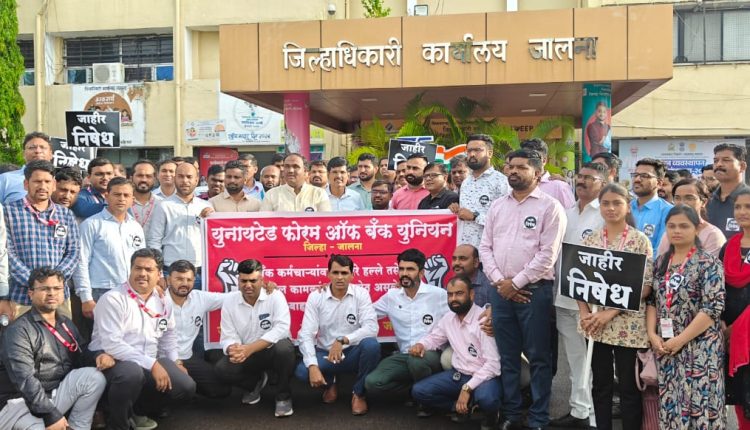The United Forum of Bank Unions (UFBU), representing nine trade unions of officers and workmen across all banks, has expressed deep concern and strong protest over the remarks made by the Union Finance Minister during the Diamond Jubilee Valedictory Lecture held on November 4, 2025, at the Delhi School of Economics, University of Delhi.
While responding to a student’s concern that privatization may restrict banking services to a privileged segment of customers, the Finance Minister appeared to dismiss this apprehension and projected privatization in a positive light. The UFBU has categorically rejected this view and reiterated that public sector banks have been the backbone of India’s financial inclusion, social justice lending, rural penetration, and national economic stability.
The forum stated that bank nationalization in 1969 was a transformative event that reshaped the socio-economic foundation of the country, making banking accessible to farmers, workers, small businesses, women, weaker sections, and rural citizens. It noted that prior to nationalization, banking largely served industrial houses and elite business groups, but public ownership expanded access to credit and created a vast network of rural branches.
UFBU highlighted that public sector banks made possible key initiatives such as priority sector lending, agricultural loans, self-help group financing, student loans, MSME support, and welfare-linked banking. It also emphasized that during economic crises, recessions, and the COVID-19 pandemic, public sector banks stood firmly with the nation, maintaining stability and protecting customers.
According to UFBU, attempts to promote privatization overlook the realities of India’s banking structure. The forum argued that private banks prioritize profit, often close unprofitable branches, increase service charges, outsource work, and neglect weaker sections. It warned that rural and semi-urban areas would face financial exclusion if privatization proceeds, as most government welfare payments, including Jan Dhan accounts, DBT transfers, pensions, and MGNREGA payments, are handled by public sector banks.
The UFBU also expressed concern that privatization could lead to job losses, contractualization, erosion of job security, reduction in reservation benefits, and weakening of trade union rights. Citing past examples of private bank failures, such as YES Bank, Global Trust Bank, and Lakshmi Vilas Bank, the forum said these institutions had to be rescued by public sector banks and the government, and questioned who would protect depositors in a fully privatized system.
It further argued that public sector banks are accountable to Parliament, the Comptroller and Auditor General, and the people of India, while private banks are accountable only to shareholders. The forum contended that the non-performing asset (NPA) crisis was caused primarily by large corporate defaults and not by small borrowers or farmers, and that it is inaccurate to blame public ownership for these problems.
UFBU also pointed out that after the 2008 global financial crisis, several countries strengthened public control over banking systems. It stressed that public sector banks are not just commercial institutions but essential public utilities handling welfare payments, pensions, subsidies, and the savings of ordinary citizens.
The forum attributed India’s current banking success to the resilience built under public ownership, citing achievements such as the Jan Dhan Yojana, DBT transfers during the pandemic, and the extensive reach of social and priority lending programs. It maintained that no country has achieved universal banking solely through privatized institutions, and that there is no evidence that privatization ensures inclusion.
According to UFBU, professionalization in banking can be achieved through capital infusion, improved governance, technology adoption, accountability, and human resource development — none of which require privatization. The organization argued that privatization only transfers control of public money to private interests.
The UFBU stated that privatization undermines national and social interests, endangers financial inclusion, threatens job security and public funds, and primarily benefits corporates rather than citizens. It reiterated that banking is a social and constitutional responsibility, not merely a business for profit.
The forum has demanded a categorical assurance from the Government of India that no public sector bank will be privatized. It also called for strengthening public sector banks through capital support, technological modernization, and transparent governance without privatization. Furthermore, UFBU demanded that any decision affecting depositors, employees, and citizens be subjected to public consultation and parliamentary debate.
Reaffirming its commitment, the UFBU said it stands with citizens, employees, farmers, workers, pensioners, and all stakeholders who believe that banks belong to the people of India, not private profiteers. It concluded by asserting that public sector banks are national assets and should not be sold.


Comments are closed.